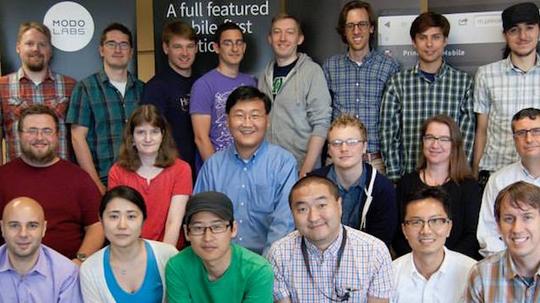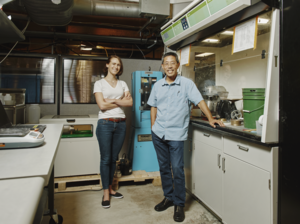
Modo Labs is an MIT spinoff that helps hundreds of universities, hospitals and enterprises make powerful mobile apps without the need for any technical prowess, and after three years of being cash-flow positive, it has raised a $10.4 million Series B round to take on "calculated risks" and make a bigger effort to market itself to the world.
That's according to Modo Labs CEO Stewart Elliot, who confirmed the recent funding round to BostInno on Wednesday. The round was led by Education Growth Partners, with participation from existing investors Storm Ventures and New Magellan Ventures .
Elliot said Modo Labs has been able to fund its own growth for the last few years, but it wanted to bring in some outside capital to "scale in a very fundamental way." That means improving the company's global hosting infrastructure for all the apps that have been created by customers on its platform, accelerating product development and increasing the number of integrations with third-party software. It's also planning to make a significant investment in marketing itself "on global basis."
"When you’re trying to feed yourself, you always have to be cautious with every decision you make," Elliot said of the company taking outside funding again. "It’s not that we wont be cautious, but you can make calculated risks."
Modo Labs originally started as a platform for helping universities and colleges create apps to better engage their student, staff and teacher populations, but it has since expanded to also serving hospitals and large enterprises.
"It’s not that we wont be cautious, but you can make calculated risks."
Elliot declined to disclose company revenue, but said you could extrapolate it from his number of employees, combined with the fact that 90 percent of the company's revenue is recurring and its been funding its own operations from the past three years. The company currently has over 40 employees, mostly in Cambridge, and Elliot said he expects it to reach close to 60 by year's end.
Outside of Capital One and a few others, Elliot said he couldn't disclose many of the company's enterprise customers. For hospitals, customers listed on Modo Labs' website include Brigham and Women's and Mass General Hospital.
Elliot said what helps separate Modo Labs from other app development platforms is that it has an enterprise-grade system that gives administrators the ability to easily invite people to contribute to different sections of an app without ceding any control. Customers can even use the platform's geofencing feature to let coworkers in specific geographies contribute to certain sections. Apps created with Modo Labs' tools can also target specific groups of people for messages.
As an example, Elliot pointed to one of Modo Labs' larger customers on the education side, the University of Notre Dame. The university recently held a contest for students to create their own campus tour, and Modo Labs' platform let entrants build it right within the app. That way, when the winner was chosen, the map was already integrated within the app.
"There are a lot of easy-to-use systems," Elliot said, "but there are few, if any, enterprise-grade ones."








